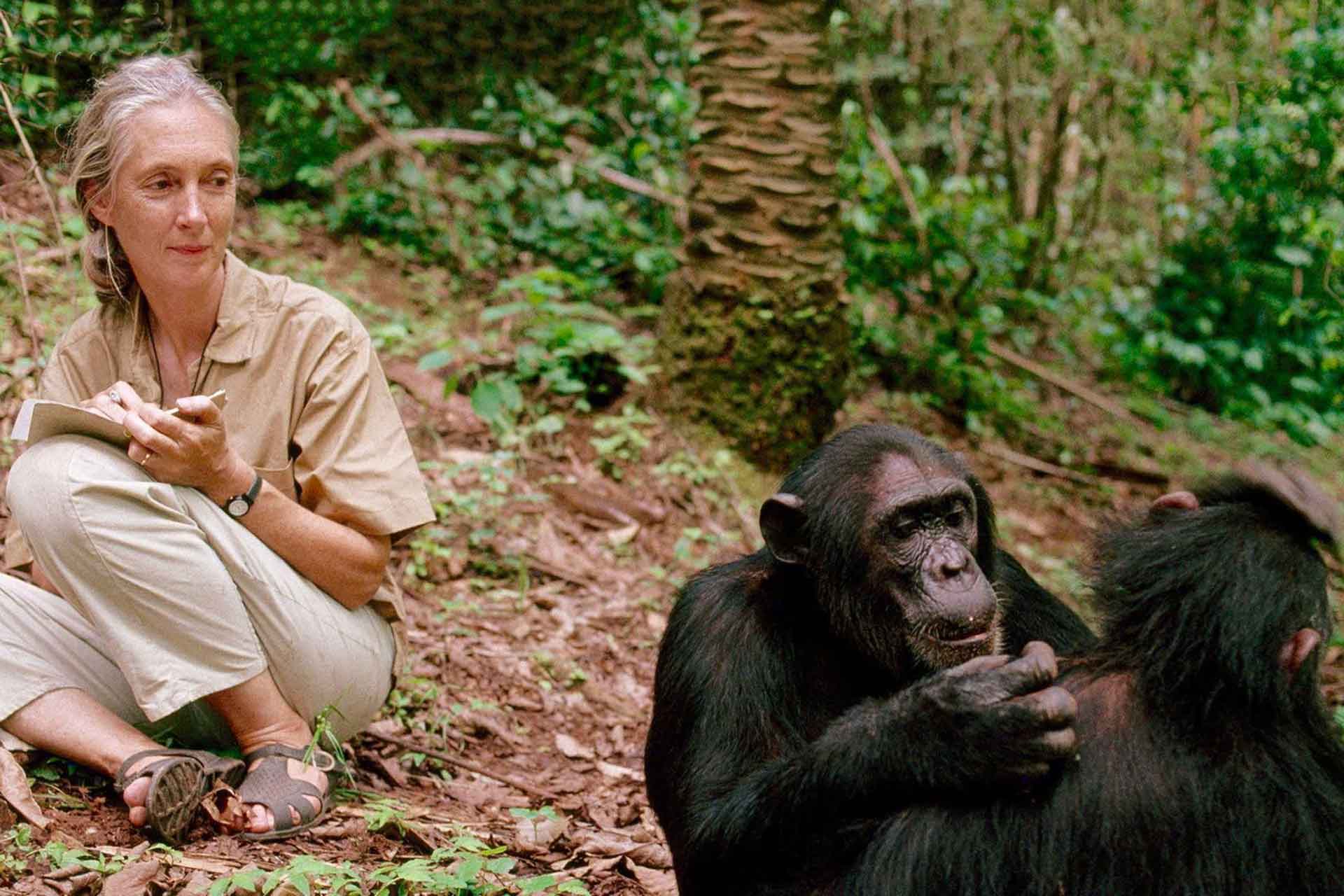
Jane Goodall: Revolutionizing Our Understanding of Chimpanzees
Introduction
Jane Goodall was born on April 3, 1934, in London, England. She has become a pivotal figure in ethology, known for her research on chimpanzees at Gombe Stream National Park. Her journey into the world of wild primates began in July 1960. At just 26, she traveled from England to Tanzania to explore the lives of chimpanzees.
Inspiration and Early Life
Jane Goodall developed a fascination with animals in her childhood, inspired by the stories she read and her innate curiosity.. This passion propelled her to realize her dream of studying wildlife in Africa, despite the challenges she faced as a woman in science during that era.
Revolutionary Discoveries
Goodall’s approach to research was revolutionary. Unlike her contemporaries, who typically used numerical identifiers for wild animals, she chose to form personal connections with the chimpanzees, even giving them individual names. This unique perspective allowed her to observe their behavior in a deeper, more meaningful way.
Her fieldwork led to over 200 scientific papers, revealing groundbreaking insights about chimpanzees.She was the first scientist to document that chimpanzees make and use tools. This discovery significantly changed our understanding of their intelligence and social structure. Goodall also found that chimpanzees have complex social lives. They show compassion, form maternal bonds, and even engage in behaviors similar to warfare.
One of her most notable observations was of a group of chimpanzees eating a bushpig, challenging the prevailing belief that they were exclusively vegetarian. She also documented the hunting behavior of chimpanzees, including an instance where they attacked and consumed a red colobus monkey.
Legacy and Impact
The implications of Goodall’s findings are profound. Her research suggests that many behaviors once seen as uniquely human may come from common ancestors shared with chimpanzees.
Through her journey, Goodall imparts several essential lessons:
- Dreams Can Come True: Her story exemplifies how determination and passion can lead to the fulfillment of dreams, even in a world filled with obstacles.
- Technology and Tradition: Goodall advocates for a balance between modern technology and traditional practices to combat climate change effectively.
- Passion Powers Change: Her unwavering commitment to animal welfare and conservation illustrates the impact of pursuing one’s passions.
- Nature’s Resilience: Goodall highlights the inherent resilience of nature, offering hope for the future.
Conclusion
Jane Goodall’s remarkable journey from a curious child in London to a leading figure in primatology is a testament to her passion and dedication. Her pioneering research has not only transformed our understanding of chimpanzees but has also inspired countless individuals to appreciate and protect the natural world. As we reflect on her extraordinary contributions, we are reminded of the profound connections we share with all living beings.
